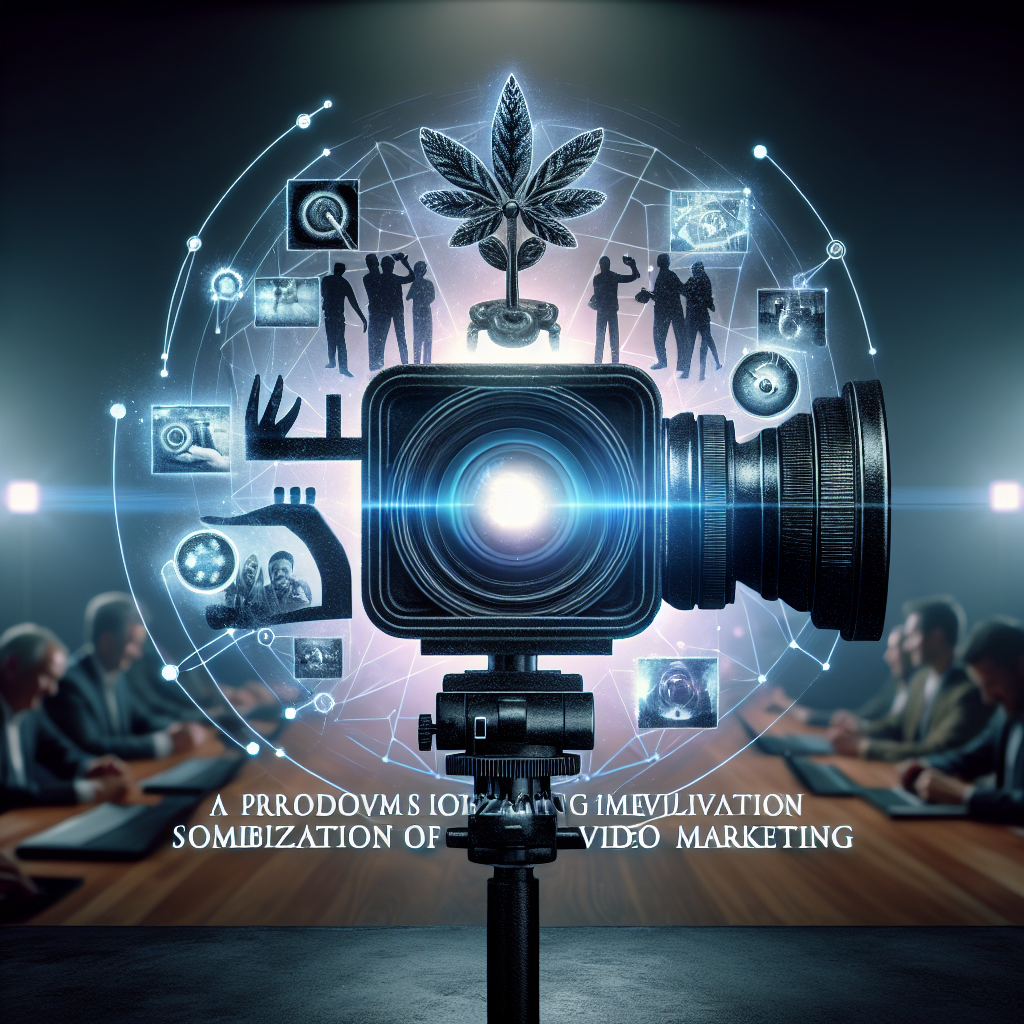Video marketing strategies
Are you looking to take your marketing efforts to the next level? Look no further than video marketing strategies. In today’s digital age, video has become a powerful tool for businesses to engage with their audience and promote their brand. From search engine optimization to social media marketing, email campaigns to influencer collaborations, video content has the ability to captivate and connect with customers in a way that other forms of marketing simply can’t. Whether you’re a small business owner or a seasoned marketer, incorporating video into your marketing strategy can help you stand out from the competition and drive results. So, let’s dive into the world of video marketing and explore the many strategies that can help you achieve your goals.
Video Marketing
Video marketing has become increasingly popular and effective in today’s digital age. With the rise of social media and the abundance of online video platforms, videos have become a powerful tool for businesses to engage with their audience and promote their products or services. In this article, we will explore the importance of video marketing, its benefits, the different types of video content, current video marketing statistics and trends, popular video marketing platforms, tips for creating effective video content, optimizing videos for search engines, using video analytics, and measuring the success of video marketing campaigns.
Importance of Video Marketing
Video marketing is important because it allows businesses to tell their story in a compelling and engaging way. Unlike text-based content, videos can capture the attention of viewers more effectively and convey messages more efficiently. They have the ability to evoke emotions, showcase products or services, demonstrate processes, and provide valuable information to the audience. This can help businesses build brand awareness, establish credibility, and drive customer conversions.
Benefits of Video Marketing
There are several benefits of incorporating video marketing into your overall marketing strategy. First and foremost, videos have a higher potential to go viral and be shared across different platforms, allowing businesses to reach a wider audience. Videos also have a longer-lasting impact on memory retention compared to other forms of content, making it easier for viewers to remember and recall the information presented. Additionally, videos can improve website’s search engine optimization (SEO) by increasing dwell time and reducing bounce rates. Furthermore, videos can be repurposed into different formats, such as social media posts, blog articles, or email newsletters, maximizing their reach and effectiveness.

Types of Video Content
When it comes to video marketing, there are various types of video content that businesses can create. Some examples include:
-
Brand videos: These videos are used to tell the story and values of the brand, showcasing its mission and vision. They can help establish the brand’s identity and create an emotional connection with the audience.
-
Product demonstrations: These videos demonstrate how to use a product or showcase its features and benefits. They can be effective in educating potential customers and helping them make informed purchasing decisions.
-
Customer testimonials: These videos feature satisfied customers sharing their experience and satisfaction with a product or service. They can help build trust and credibility, and encourage others to try the product or service.
-
Tutorial or how-to videos: These videos provide step-by-step instructions on how to do something or solve a problem. They can position the brand as an expert in their industry and provide value to the audience.
-
Explainer videos: These videos simplify complex concepts or processes and make them easier to understand. They can be effective in explaining new products or services, or introducing a new feature or innovation.
Video Marketing Statistics
Here are some video marketing statistics that highlight the impact and effectiveness of video marketing:
- According to Cisco, by 2022, online videos will make up more than 82% of all consumer internet traffic.
- HubSpot reports that 87% of businesses use video as a marketing tool.
- According to OptinMonster, including a video on a landing page can increase conversions by 80%.
- WordStream found that social video generates 1,200% more shares than text and images combined.
- Wyzowl reports that 68% of consumers prefer to learn about a product or service through a short video.
These statistics demonstrate the growing importance and effectiveness of video marketing in capturing and retaining audience attention.

Video Marketing Trends
As technology continues to evolve, video marketing trends are also changing and adapting to the current landscape. Some notable video marketing trends include:
-
Live streaming: With the popularity of platforms like Facebook Live, Instagram Live, and YouTube Live, businesses are leveraging live streaming to engage with their audience in real-time and showcase events, webinars, or behind-the-scenes content.
-
Vertical videos: As more people consume video content on mobile devices, the trend of vertical videos has emerged. Vertical videos are optimized for the narrow screen of mobile devices, providing a better viewing experience for mobile users.
-
360-degree videos: Immersive videos that allow viewers to explore a scene in all directions have gained popularity. These videos can be used to provide virtual tours, showcase products, or create interactive storytelling experiences.
-
Interactive videos: Interactive videos allow viewers to engage with the content by making choices or interacting with elements within the video. This can enhance viewer engagement and provide a more personalized experience.
-
Personalized videos: Personalization is a powerful tool in marketing, and personalized videos take it to the next level. These videos are tailored to specific viewers, incorporating their name, location, or other relevant information. This can create a more personalized and memorable experience for the viewer.
These trends highlight the importance of staying up-to-date with the latest video marketing techniques and technologies to effectively engage with the target audience.
Video Marketing Platforms
There are various video marketing platforms that businesses can leverage to reach their audience and promote their videos. Some popular platforms include:
-
YouTube: As the largest video-sharing platform, YouTube allows businesses to upload and share their videos to a wide user base. It offers features like video monetization, advertising options, and analytics for tracking video performance.
-
Vimeo: Known for its high-quality videos, Vimeo is a popular platform for businesses in the creative industry. It provides a range of features such as customizable video players, privacy settings, and video analytics.
-
Facebook: With its massive user base, Facebook provides a valuable platform for businesses to share their videos. It offers autoplay videos in users’ news feeds, live streaming capabilities, and targeted advertising options.
-
Instagram: Focused on visual content, Instagram is a popular platform for sharing short and engaging videos. Its Stories feature allows businesses to create temporary videos that disappear after 24 hours.
-
LinkedIn: For businesses targeting a professional audience, LinkedIn provides a platform for sharing industry-related videos, thought leadership content, and company updates.
Understanding the features and target audience of each platform can help businesses choose the most appropriate platforms for their video marketing efforts.
Creating Effective Video Content
To create effective video content, there are several key factors to consider. First, it is important to define the goal of the video and understand the target audience. This will help structure the content, tone, and messaging to resonate with the viewers. It is also important to keep the video short and concise, as attention spans are often limited. Capturing the viewer’s attention in the first few seconds and maintaining engagement throughout the video is crucial. Including a strong call-to-action at the end can encourage viewers to take the desired action, such as visiting a website or making a purchase. Finally, ensuring the video is visually appealing, well-edited, and has high audio and video quality will enhance the overall viewing experience.
Optimizing Videos for Search Engines
To maximize the visibility and reach of video content, it is important to optimize videos for search engines. This can be done by:
-
Using relevant keywords: Including relevant keywords in the video title, description, and tags can help search engines understand the content of the video and rank it accordingly.
-
Adding captions and transcripts: By adding captions and transcripts to the video, search engines can index the text and improve the video’s visibility in search results.
-
Optimizing video thumbnails: Choosing visually appealing and relevant thumbnails can entice users to click on the video in search results, improving its click-through rate.
-
Promoting videos on social media and websites: Sharing videos on social media platforms and embedding them on websites can increase their visibility and improve search engine rankings.
By implementing these optimization techniques, businesses can improve the discoverability and visibility of their video content.
Using Video Analytics
Video analytics provide valuable insights into the performance of video content. By analyzing metrics such as views, engagement rate, click-through rate, and audience retention, businesses can gain a deeper understanding of how their videos are performing. This data can help identify which videos are resonating with the audience, which can guide future video marketing strategies. Additionally, video analytics can provide demographic information about the viewers, allowing businesses to better understand their target audience and tailor future content accordingly.
Measuring the Success of Video Marketing
Measuring the success of video marketing campaigns is essential to assess the return on investment (ROI) and make informed decisions for future strategies. There are several key performance indicators (KPIs) that can be used to measure the success of video marketing campaigns, such as:
-
Views: The number of times a video has been viewed can indicate its reach and popularity.
-
Engagement rate: This measures the level of interaction and engagement with the video, such as likes, comments, and shares.
-
Click-through rate: This measures the percentage of viewers who clicked on a call-to-action within the video, such as a link to a website or a product page.
-
Conversion rate: This measures the percentage of viewers who took the desired action, such as making a purchase or signing up for a newsletter.
By tracking these metrics and comparing them against the goals and objectives set for the video marketing campaign, businesses can evaluate its success and make data-driven decisions for future campaigns.
In conclusion, video marketing is an important and effective tool for businesses to engage with their audience, promote their products or services, and drive customer conversions. By understanding the importance and benefits of video marketing, creating various types of video content, staying up-to-date with video marketing statistics and trends, leveraging popular video marketing platforms, creating effective video content, optimizing videos for search engines, using video analytics, and measuring the success of video marketing campaigns, businesses can harness the power of videos to enhance their overall marketing strategies and achieve their goals.
















It's great that you talked about how business insurance can provide financial protection against unexpected events and help ensure the…
I like that you mentioned how business insurance is essential for protecting your bottom line and the long-term viability of…